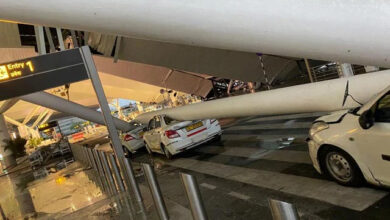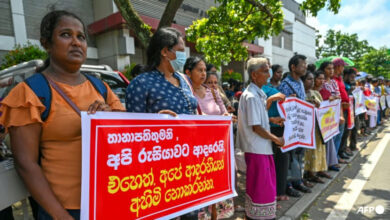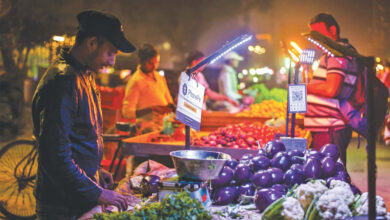In Pakistan, Economic Crisis Mutes Ramadan Celebrations

Islamabad: The crowds begin to form at dawn. They swell through the day as hundreds of men and women swathed in bright purple and pink scarves wait outside the charity’s gates in Karachi, Pakistan. Many sit for hours, desperate to collect enough flour, rice, sugar and cooking oil to break their daily fast for the holy month of Ramadan.
“Ramadan is for fasting, praying, and celebrating, but in Pakistan, inflation has been forcing people to queue and die in stampedes to receive free food,” said Muhammad Aziz, a textile worker, 52, as he waited in the crowd. “It is the most expensive and unaffordable Ramadan of my life.”
Across Pakistan, the season of Ramadan — a time of daily fasting and nightly feasts with family — is in full swing. But this year, an economic crisis that has sent the price of goods soaring to record highs has muted celebrations for millions of families struggling to buy the dates, rice and meat needed to break their daily fast.
The South Asian nation — home to more than 230 million — is facing one of the most daunting economic challenges of its history.

As Ramadan began last month, inflation was at a record 35.4 percent — the highest in nearly five decades — according to government figures. Severe floods last fall devastated much of the country’s agricultural belt, ruining wheat harvests and damaging farmland for what may be years to come. And because Ukraine exports essential grains, the war there has further strained Pakistan’s food supply, officials say.
The rising prices have stoked anger among many Pakistanis. After Prime Minister Imran Khan was ousted in a vote of no confidence last year, many hoped that the new government, led by Shehbaz Sharif, would bring an end to the inflation that had begun rising under Mr. Khan’s tenure.

Instead, the prices of necessities have continued to soar as the government has struggled to secure a bailout from the International Monetary Fund. Some critics have also blamed the government, accusing the country’s political elite of being preoccupied with the drama surrounding Mr. Khan’s political comeback and distracted from addressing the economic crisis.
“Pakistan’s ruling elite has failed in providing relief to the people, and nothing will be able to prevent the wrath of the latter from falling on the former in the weeks and months to come,” said Uzair Younus, the director of the Pakistan Initiative at the Atlantic Council. “This is a confluence of economic, political and security crises in Pakistan, and should be viewed as the most serious threat to the country’s cohesion since 1971.”


![Mumtaz Zahra Baloch, spokesperson for Pakistan's Foreign Ministry, says the country believes in constructive dialogue with the US [Courtesy of Pakistan Ministry of Foreign Affairs]](https://southasiancorrespondent.com/wp-content/uploads/2024/06/pak-1-390x220.jpg)

